Podcast
How Raiders coach Pete Carroll, the NFL's Benjamin Button, is aging so gracefully
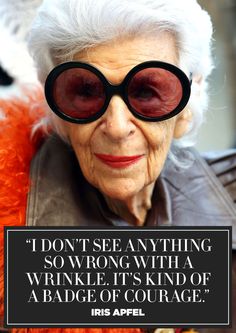

Pete Carroll often pulls ideas from those around him.
During the 2023 season, the veteran Seattle Seahawks head coach was in a brainstorming session with defensive backs coach Karl Scott. They began discussing a defensive coverage one night, and their conversation spilled over to the next day.
The two met in Carroll’s office before an early morning staff meeting. It was an intense back-and-forth that might have looked confrontational from the outside, but they were really just talking ball. Then, suddenly, as Scott laid out his perspective, Carroll broke the tension with a seemingly unprompted smirk.
Advertisement
Caught off guard, Scott pivoted from making his case to asking if he’d said something wrong to his boss.
“Nah, man. You’re making that face, man,” Carroll said. “That face I’ve just seen you make is the same face Kina makes.”
Kina is Scott’s daughter, who was 5 at the time. To Scott, her mannerisms coming up during a game-planning debate symbolized Carroll’s ability to balance his relentless competitiveness with his similarly persistent humanity.
“You’re so used to locking in in the world of football and the world of sports,” Scott said recently, “but in those two seconds, he was able to … be a regular person and have true emotion. That threw me off because it was so unique. … Even in the midst of all this (stress), he’s Pete Carroll. He’s himself.”
That consistency was one of the driving factors behind the Las Vegas Raiders’ decision to hire Carroll this offseason and make him the oldest head coach in NFL history. His mind and body have undoubtedly changed as he approaches age 74, but his core approach remains the same.
Carroll won a national championship at USC and a Super Bowl with the Seahawks on the back of his famed “always compete” mantra. That mentality comes with high standards for his assistants and players, but his style is far from militaristic.
Sometimes, there are impromptu H-O-R-S-E competitions on mini hoops in meeting rooms. Other times, he’s showing defensive backs how to backpedal during individual drills. He might even randomly drop “The People’s Elbow” on an unsuspecting player during warmups. All of that is mixed into a singular focus on winning.
“It’s truly a competition for everything we do, but we’re having fun with it,” Raiders defensive end Maxx Crosby said this spring. “He just wants to see guys be the best versions of themselves. And he’s true to that. It’s not fake energy. It’s every day. He’s the same guy.”
Carroll has mastered the ability to connect with people. Whether it’s a peer or someone decades his junior doesn’t matter.
Advertisement
“Whether you’re 21 or 71, there is one language that real ones speak — and that’s competitiveness,” Washington Commanders coach and former Carroll assistant Dan Quinn said. “There’s the languages of love; there must be another one — and that one is competing.”
Ben Malcolmson played for Carroll at USC and later served as his assistant for over a decade with the Seahawks. He’s seen Carroll build and reaffirm team culture repeatedly. Age hasn’t changed his approach.
Early in his Seahawks tenure, Carroll buzzed around the building with the same energy level as a kid at recess. Malcolmson figured it was due to all the Mountain Dew he drank. Years later, Carroll switched his diet, cutting down on unhealthy foods, caffeine and sugar.
“I think he had more energy after that,” Malcolmson said recently.
It wasn’t the Mountain Dew.
“He doesn’t believe he’s got to get old,” Malcolmson said. “He’s like Benjamin Button.”
With his resume, Carroll has likely already punched his ticket to the Pro Football Hall of Fame. No one would’ve blinked had he retired after parting ways with the Seahawks in 2023, but he knew he wasn’t done yet. He had more to give, and the Raiders are giving him the opportunity to do just that.
“It’s about competing and proving that you have value, you have worth,” Carroll said at his introductory news conference in January. “I don’t care how old you are. For anybody out there that’s old and wants to know how you do it, you freaking battle every day, and you compete and you find your way to get better.”

Set to turn 74 in September, Pete Carroll is still known for his energy and forging close relationships with his coaches and players. (Alika Jenner / Getty Images)
Neiko Thorpe will never forget his introduction to Carroll and the Seahawks in September 2016. It began with a workout at the team facility, then a phone call from Carroll informing him he made the team — and that the Seahawks had arranged for a first-class flight back to Oakland, where Maegan, Thorpe’s wife, had just given birth to their daughter, Nora. Thorpe, who had recently been cut by the Raiders and Indianapolis Colts, surprised Maegan in the hospital — flowers in hand — and met Nora, then returned to Seattle to begin his career as a Seahawk.
Advertisement
Thorpe knew the organization cared about him. He returned the favor by giving his all on the field for five seasons, leading the team in special teams tackles twice and becoming a three-time special teams captain.
“(It’s) not just fourth-and-inches when they say this game is the little things,” said Thorpe, who joined Carroll’s coaching staff in 2022 and was retained by current coach Mike Macdonald. “It’s the little things like that.”
Carroll’s relationship-based approach takes many forms. He’s demanding and sets a high standard, but his primary means of motivation is built around positive affirmations, not preying on fear of failure. He’s known for playing young players early — something many coaches are hesitant to do — empowering them to play fast and freely instead of coaching them to avoid mistakes. And it works: The 2013 Seahawks had the youngest 53-man roster ever to win a Super Bowl. The approach is a big reason so many played the best ball of their careers in Seattle, and several assistants found success elsewhere.
“He makes people better,” Quinn said. “And I don’t care if that’s at (age) 32, 42, 52, 72. That’s a trait — and not everybody has it.”
To do so, Carroll must know them as people, not just football commodities. Learning their stories, no matter how bumpy the road, is a key part of the process. In Seattle, he was drawn to players with chips on their shoulders.
This partly explains Carroll’s success with late-round draft picks like Kam Chancellor and Richard Sherman; undrafted players like Doug Baldwin and Jermaine Kearse; others in search of a second act like Marshawn Lynch, Brandon Browner, Quandre Diggs and Geno Smith; and some with a history of off-field issues like Bruce Irvin.
Carroll saw what they had been through, where they’d been and how it informed who they could become.
“Coach Carroll is extremely relatable,” said Smith, one of Carroll’s all-time favorite players, who joined him with the Raiders this offseason. “He understands that guys have got to be themselves in order to be their best selves.”
“He helped me change the way I spoke to myself.”
Geno Smith’s relationship with Pete Carroll is special.@Raiders (via @NFLFilms)pic.twitter.com/YUy3vSOFvn
— NFL (@NFL) March 8, 2025
You can be a soft-spoken special-teamer, a loud-mouthed defensive back, a rah-rah speech giver or a lead-by-example type. Just be you, Carroll insists, and that’s more than enough.
“It’s more than just doing work and getting practice done, getting games, getting wins,” Malcolmson said. “It’s like, ‘No, this is a relationship,’ and that is on display with how he can connect with people.”
Advertisement
Carroll’s 50-plus years of coaching have shown him that, independent of age or background, players and coaches want the same thing: genuine, caring leadership. He has a reputation for delivering, through good times and bad. He has won and lost championships at the college and pro levels and navigated all that comes with those successes and failures. Carroll has learned to remain unwavering in his messaging and his commitment to the people following his lead.
“The essence of it is figuring out who you are and what you want to stand for, and how you are going to deal with people,” Carroll said. “And it has to come from your heart. It has to be right, as authentic as it can possibly be.”

Carroll and the Seahawks drafted Richard Sherman in the fifth round in 2011. The defensive back would become a three-time first-team All-Pro in Seattle. (Harry How / Getty Images)
Carroll was once a failure in this profession. After four years as the New York Jets’ defensive coordinator, he was hired as the team’s head coach in 1994. He was fired after just one season, a 6-10 campaign.
He landed a second chance with the New England Patriots in 1997, and the team made the playoffs in his first two seasons. Following an 8-8 season with no playoff berth, though, Carroll was fired again. He spent the 2000 season out of coaching, but he wasn’t idle.
“That was the year that, really, my life in football changed,” Carroll said. “I really didn’t know that I wanted to be a head coach — it just kind of happened, honestly. And I wasn’t prepared well enough. I didn’t have my philosophy together. …
“It was pretty dang significant. And it was (about) figuring out who I am, figuring out what my uncompromising principles are all about, figuring out how I wanted to treat the people and how I envisioned the organization coming together in all aspects.”
After a year getting his act together, Carroll landed the USC job. Although he’s hailed now as a program legend, his hire was initially met with apathy.
Advertisement
“They were yelling at me for coming in there. They didn’t want me,” Carroll said. “I was getting a terrible response, but I took it on as, ‘I couldn’t care less,’ because I knew where we were going and what we wanted to do. And because I figured out how I wanted to do it.”
Carroll’s historic nine-year run at USC never would have happened if he hadn’t realized he needed to adapt. His son, Brennan Carroll, who’s now the Raiders’ offensive line coach, was on staff at USC and saw his growth firsthand.
“He’s very open-minded. He isn’t set in his ways in any aspect except with the fundamentals,” Brennan said recently. “As times have changed, he’s always tried to stay aware.”
Pete aimed to stay on top of everything at USC, from offensive and defensive trends to popular music and the advent of social media.
“He loves surrounding himself with people who are on the tip of the spear,” Malcolmson said. “That speaks to who he is. He’s always looking for that next little edge, and he’s willing to trust the people that he’s put around him to help get a little bit better each time.”

Carroll went 97-19 in nine seasons at USC, going 7-2 in bowl games and winning the 2004 national championship (The Trojans also finished No. 1 in the AP poll in 2003 but were left out of the BCS title game). (Jeff Golden / Getty Images)
Carroll has replicated that process with the Raiders this offseason.
“Music or entertainment or sports or politics — he stays on top of everything,” quarterbacks coach Greg Olson said. “He’s a very well-read man. He can carry a conversation with a 10-year-old or a 95-year-old. He can relate to the rich, poor, White, Black, young or old; he does it all.
“I think you have to be in tune with what’s going on in society, really, if you want to have that kind of impact on people. He’s incredible at it.”
The Raiders have been the epitome of instability. Carroll is their 15th head coach since 2000 (including interim coaches; 16th if you count Jon Gruden’s separate stints). Crosby has played for the franchise since 2019 and is already on his fifth head coach.
Advertisement
It’d be understandable if Crosby were hesitant to buy into another culture change, but that hasn’t been the case.
“Pete creates that culture, that energy,” Crosby said. “Everyone knows it’s hard — you’re going to work your ass off, you’re going to put in all the work — but you’ve got a whole organization of people that’ve all got to be on the same wavelength and go in the same direction. … I think Pete does an incredible job with that.”
As much work as Carroll does to remain young, Father Time is undefeated. To create a lasting legacy with the Raiders, he will have to work quickly. And if you ask him, there’s no doubt that’s going to happen.
“We’re trying to take this as far as you can possibly take it,” Carroll said. “I can’t think any way else.”
(Illustration: Will Tullos / The Athletic; photos: Patrick Smith, Kevork Djansezian, Robin Alam, Ethan Miller, Jane Gershovich, Andy Lyons / Getty Images)
Podcast
Better rookie season

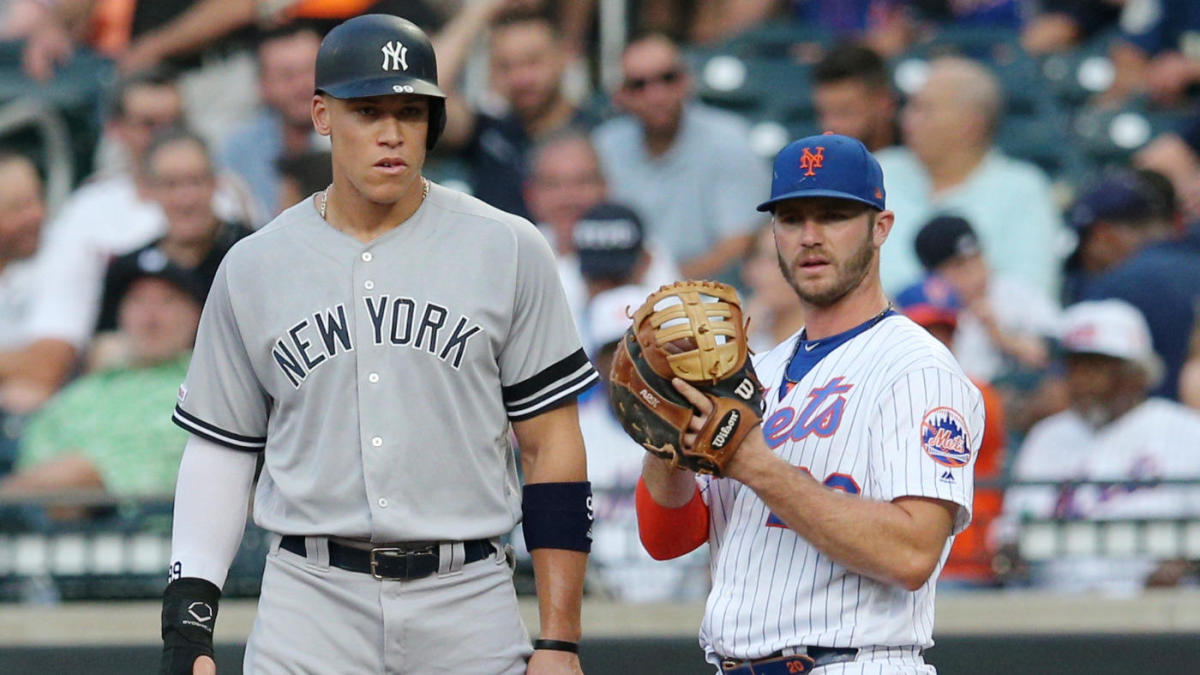

As the clock wound down in a recent contest, the Golden State Valkyries’ Veronica Burton and Kaila Charles swarmed Paige Bueckers on the perimeter to deny the Dallas Wings rookie from even getting off a shot. The 3.2 remaining seconds ticked away, and the ball remained in Bueckers’ hands as the buzzer sounded.
Advertisement
That type of attention has become common for Bueckers in her debut WNBA season, especially as the firepower in the Wings rotation has thinned because of injury — eight of 12 players on the opening-night roster have missed seven or more games — putting more offensive burden on her. Bueckers has also proven increasingly capable of dissecting single coverage and has demanded star-level defense.
“She lets the game come to her, and she takes what the defense is giving her all over the floor,” Wings coach Chris Koclanes said. “She doesn’t get sped up, and it’s really impressive for a rookie in this league to be able to maintain her own speed and tempo.”
But the game was already in hand when the Valkyries corralled Bueckers at the 3-point line. Golden State led by nine and the heightened defense wasn’t because the game was in balance; it was because Bueckers needed one more point to reach double digits, as she had done in every prior game of her rookie year.
With Dallas long since removed from postseason contention and playing out the string over the second half of the season, these are the stakes for Bueckers. She hasn’t been put in position to chase wins; she can only pursue individual accolades while the Wings build for the future. Nevertheless, despite a constantly changing supporting cast, Bueckers has thrived, putting herself in conversation for one of the best debuts in league history.
Bueckers has been the leading rookie scorer every month of the 2025 season, and her average of 18.9 points is seventh in WNBA history among rookies. With three games left, a late surge could move Bueckers past her teammate Arike Ogunbowale, who is sixth on the list at 19.1.
Paige Bueckers in August:
🪽 20.3 PPG | 3.7 RPG | 5.0 APG
🪽 44-point performance: highest by any W player this season
🪽 @Kia Rookie of the Month#KiaROTM | #WelcometotheW pic.twitter.com/Cx09czcFhi— WNBA (@WNBA) September 3, 2025
As was the case during her college career that culminated in a national championship at UConn, Bueckers has been efficient in the process of scoring at a high volume. Among rookies who have averaged at least 17 points per game, Bueckers is sixth in field-goal percentage at 46.7. The only two guards in front of her are Chennedy Carter, whose first season came in the friendly offensive environment of the WNBA bubble, and Cynthia Cooper-Dyke, who was a 34-year-old rookie during the league’s inaugural season.
Bueckers has been an elite playmaker as well. She is on pace to finish the season as one of 12 rookies to ever average five assists per game, and one of two to pair that with 15 points, joining Indiana Fever star Caitlin Clark.
Advertisement
Clark became the standard-bearer for rookie guards during her historic 2024 season, and her production is the only realistic point of comparison for Bueckers. Sue Bird and Diana Taurasi were also first-year All-Stars, but neither displayed the same combination of elite scoring and creation as Clark and Bueckers. The new generation of rookies has the advantage of playing in a more offensive-minded league. Still, their numbers relative to the rest of the league stand out.
The last two No. 1 picks both delivered individual historic moments. Bueckers tied a rookie record last month with 44 points against the Los Angeles Sparks, on a night when she started alongside two players who were signed midseason to hardship contracts. Clark set the single-game assist record of 19 about midway through last season.
But Bueckers trails Clark in most of the counting stats: 18.9 to 19.2 in points, 3.7 to 5.7 in rebounds, and 5.3 to 8.4 in assists. Other than points, those differences cannot be explained by the extra two minutes Clark averaged as a rookie. The major advantage Bueckers possesses is in turnovers, where her 2.1 per game is significantly better than Clark’s 2.8.
Bueckers has a better overall field-goal percentage, but since so many of Clark’s shots came from 3-point range, the Fever guard’s effective field-goal percentage (which weights the point value of each field goal) of 52.2 percent bests Bueckers’ mark of 50.4. Clark also shot better from 3-point range (34.4 percent to 33 percent) despite attempting them three times as frequently.
Those box-score numbers don’t fully account for the surrounding situation of each rookie. Clark’s assists, for example, were easier to come by with All-Star Aliyah Boston in the middle of the floor; the 2023 No. 1 pick was the recipient of 105 of Clark’s helpers, or 2.6 per game. Both Clark and Bueckers had an All-Star guard sharing the backcourt in Kelsey Mitchell and Ogunbowale and a relatively similar level of talent on the rest of the roster, at least to start the season, but Dallas didn’t have anyone resembling Boston.
Another feat for PB5 🙌
Paige Bueckers joins Caitlin Clark as the second rookie in WNBA history to record 500+ PTS, 150+ AST, 100+ REB, and 50+ STL in a season. #WelcometotheW pic.twitter.com/G1rooMRgLo
— WNBA (@WNBA) August 23, 2025
Although Bueckers had a worse net rating than Clark (minus-5.0 compared to minus-2.4), her on-off differential has been better in her rookie season. The Wings are 8.1 points per 100 possessions better with Bueckers on the court, demonstrating her impact, even if it hasn’t translated to victories. Win shares favor Bueckers as well, and she can build on her 3.5-3.0 lead in the final three games.
Advertisement
However one chooses to assess the statistical impact of Bueckers and Clark in their first years, there is one point of comparison that works in Clark’s favor. Bueckers’ production has come in the context of a largely meaningless season, as Dallas hasn’t even spent one day in playoff position. Clark and the Fever, on the other hand, rallied from a 2-9 start to pursue a postseason berth.
That is the next frontier for Bueckers: not be a spoiler, but to play in games of real consequence. Clark’s rookie season ended with a big chasing her on the perimeter as she launched a 3-pointer because a playoff win was on the line. Bueckers’ rookie season could be lost to history if Dallas doesn’t put her in that position sooner than later.
(Photo of Paige Bueckers: Ron Jenkins / Getty Images)
NIL
Christian Gonzalez misses Patriots practice, 'working' to return from injury
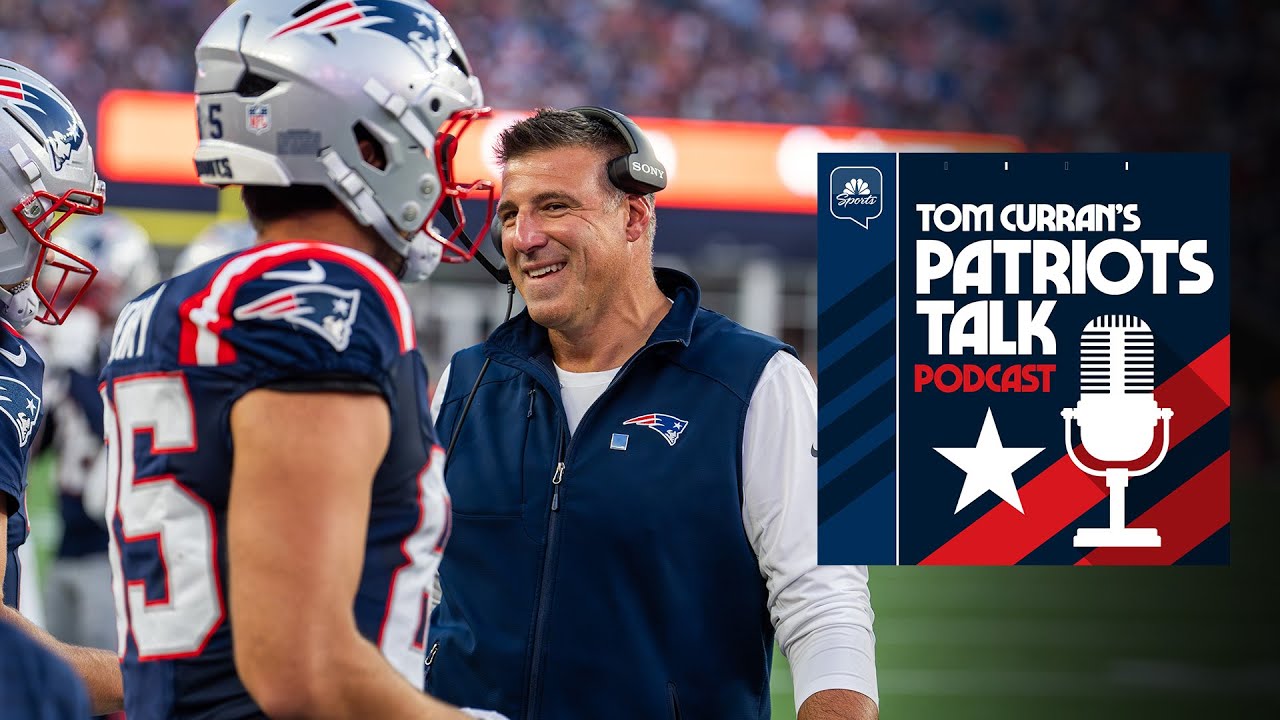

FOXBORO — Christian Gonzalez quietly folded and put away some of the clothing in his locker at Gillette Stadium.
While his Patriots teammates prepared for a fully-padded practice just four days before their season opener, the third-year corner did not. He understood the plan for him on Wednesday was to do some conditioning work on the side and not much more.
“I’m working,” he said softly.
Gonzalez is inarguably his team’s best player. He was named a Second-Team All-Pro last season after routinely matching up with and shutting down opposing No. 1 receivers. He was expected to be one of the linchpins of Mike Vrabel’s defense in 2025, allowing for extensive man-to-man looks and aggressive calls for pressure because of his lock-down coverage skills.
But after Gonzalez missed Wednesday’s practice, his status for Sunday’s game is in doubt, despite Vrabel not ruling him out. Gonzalez hasn’t practiced since injuring his hamstring on July 28.
“He’s continuing to work,” Vrabel said prior to the practice, “and he’ll do some stuff on the side, but I’m not going to rule anybody out. … We’ll continue to work and treat and make sure that we’re doing everything that we can to help him, and he’s doing everything he can to get back out on the field. That’s the only update I have right now.”
Gonzalez rode a stationary air bike on the upper fields behind Gillette Stadium while his teammates practiced on the lower field. He pedaled under the watchful eye of assistant strength and conditioning coach Brian McDonough before pausing and watching the action on the fields below.
“I mean, I do like where he’s at from an engagement standpoint,” Vrabel said. “We’ve been through this with other players, and I like where he’s at from that standpoint. In the meetings, locked in, following along at practice, which is difficult. To think that a player that’s not in there can follow along, I’ve been through that as a player and a coach, and I think he’s done a nice job of being able to do that.”
While Vrabel surely would like to have Gonzalez for Week 1 against a Raiders offense that features second-year standout tight end Brock Bowers and former Patriots wideout Jakobi Meyers, he didn’t indicate that he would be rushing Gonzalez back onto the field, either.
When asked if it was important for him to allow players to get back to “100 percent” before returning to the field, Vrabel shed some light on his thought process.
“I mean, I don’t use percentages,” Vrabel said, “but, again, I’ll remind you what we talked about as far as, when I try to make decisions about players and returning, one, can they make it worse? Can they, two, protect themselves?
“We can all say what we want about this game, but it’s violent, and can you protect yourself? And can you do your job up to the standard that we expect and that the player is used to? So, those are the things that I’ve tried to use when making decisions. Maybe I’ll add some to that, but that’s what I’ve tried to use in my other experience in this position.”

Podcast
Steve Smith Moves His Podcast, 'The 89 Show,' to Blue Wire

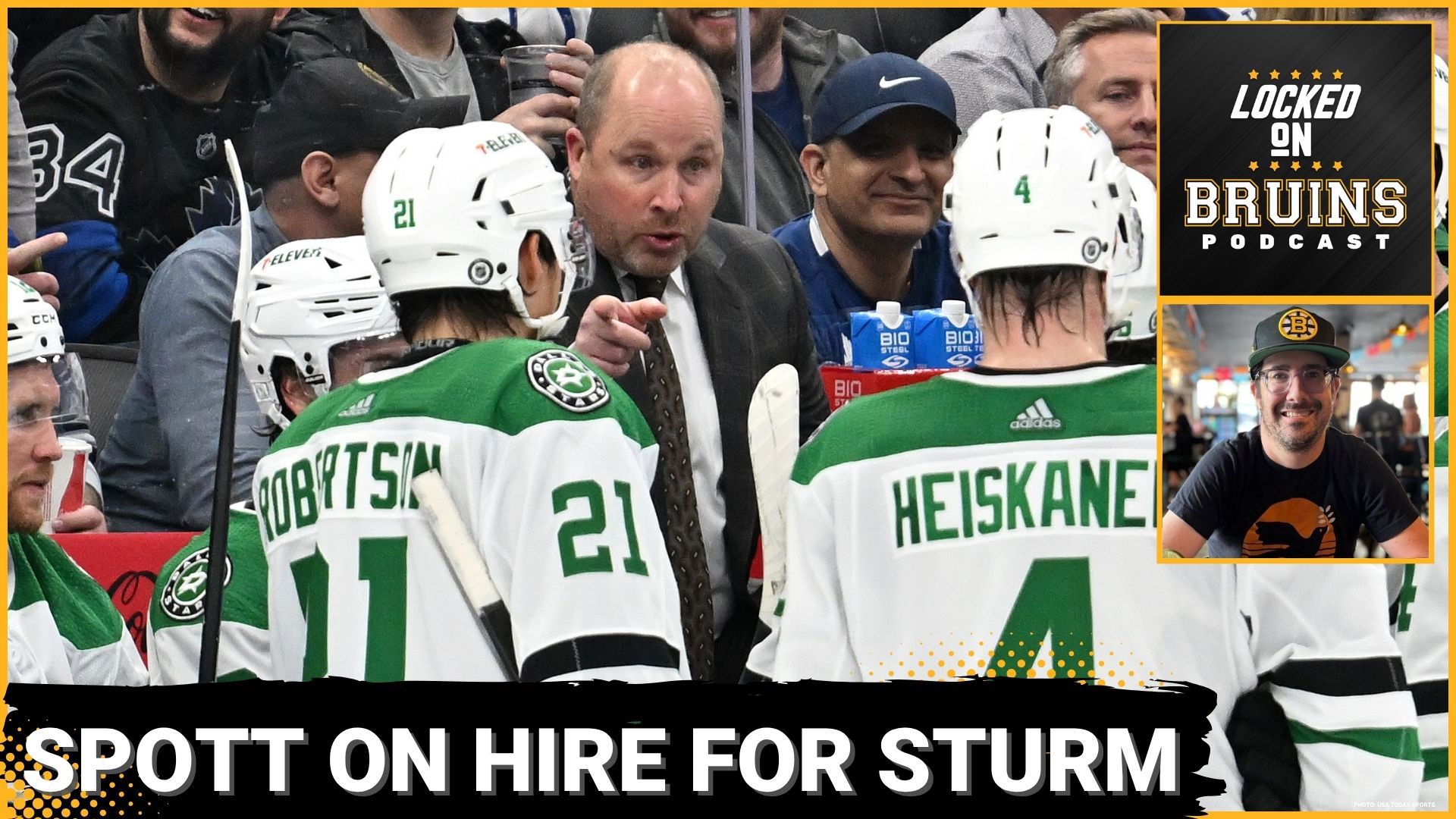

- Loading stock data…
Podcast
Andy Roddick returns to tennis on own terms with successful 'Served' podcast



Andy Roddick’s journey back to tennis began during the COVID-19 pandemic, when Tennis Channel asked him to remotely appear on studio programming while the sports world was shut down.
“I didn’t really play. I would come [to the U.S. Open] to do corporate work once a year, and that was it,” Roddick recently told Sports Business Journal. “Tennis Channel was great because I could do it from home. My one thing was, I never wanted the game to control my geography ever again.”
Five years later — and 13 after announcing his retirement from play on his 30th birthday — Roddick has established a pillar of the tennis media ecosystem on his own terms with his “Served” podcast.
Launched in January 2024 with veteran producer Mike Hayden and journalist Jon Wertheim, the show began with ambitions as simple as “a fun side project that I thought no one would listen to,” in Roddick’s words. But since its debut, the show has garnered more than 150,000 YouTube subscribers, 185,000 social media followers and 3.5 million audio downloads while attracting marquee sponsors such as Amazon Prime (2025 French Open, U.S. Open), Mercury Financial (2025 Wimbledon) and ServiceNow (live shows at the upcoming Laver Cup) for events. It also joined Vox Media’s network of sports podcasts last year.
As it’s grown, “Served” has earned bona fides with tennis diehards for long-form interviews with Rafael Nadal and Andre Agassi; laid-back but incisive analysis of tennis’ entire calendar of events (not just the Grand Slams); and the versatility to dig deep into topics such as, in an early sitdown with longtime IMG Tennis agent/executive Max Eisenbud, the economics of tennis player development.
“What makes him special, specific to his podcast, is his ability to transcend the deep tennis insiders, but also the casual tennis fans,” said Eric Butorac, a former doubles player on the ATP Tour and the USTA’s senior director of player relations and business development.
“He’s [Roddick] exactly like he was on tour. You walk into the locker room, and you just hope he’s sitting there, because he’s going to be jabbering away, super engaged, super competitive. … It’s the same way when I turn on ‘Served.’”
Served Media — the media company atop “Served” co-founded by Roddick and Hayden — is now a seven-figure revenue business. Since the debut of its eponymous podcast, it has launched a women’s tennis-focused show hosted by Kim Clijsters, daily recap program hosted by Hayden, active social and newsletter channels, and a merchandise line, with yet-to-be disclosed plans for further content expansion.
“We thought there would be a lane for it for, like, super nerds,” Roddick said. “But I don’t know that we thought it would grow like this.”
NIL
Postgame Podcast


RALEIGH, N.C. — NC State needed a fourth-down stop in the red zone to survive, but came away with a 24-17 win over ECU to start the season. The Wolfpack (1-0) finished with 423 total yards behind CJ Bailey’s 318 yards passing with one touchdown through the air and one on the ground.
Cory Smith and Michael Clark share their thoughts after the game, including Bailey’s performance, Wesley Grimes’ career night, Hollywood Smothers’ solid outing, and the defense’s up-and-down night. Get all of that and more on the latest Postgame Podcast.
CLICK HERE TO TRY THE 75% OFF TRIAL TODAY!
Listen to the full podcast below and subscribe on iTunes, the Google Play Store or find us on Spotify by searching for “Pack Pride Podcast” under the podcasts section.
Not a VIP subscriber to Pack Pride? Sign up now to get access to everything R. Cory Smith, Michael Clark and the entire Pack Pride team have to offer on all things NC State and access to the No. 1 site covering the Wolfpack.
Sign up for FREE text alerts to get breaking news on commitments, decommitments, transfers, injuries, coaching changes and much more with our NEW text alert system available to all registered users and VIP subscribers. Click Here to become a FREE registered user and Click Here if you are already a VIP subscriber.
Want the latest news on NC State delivered right to your email? Subscribe to the Pack Pride newsletter here. It is free and a great way to get daily updates on NC State football, basketball, baseball, recruiting and more delivered straight to your inbox.

Podcast
Cam Newton Expands 'First Take' Role Post
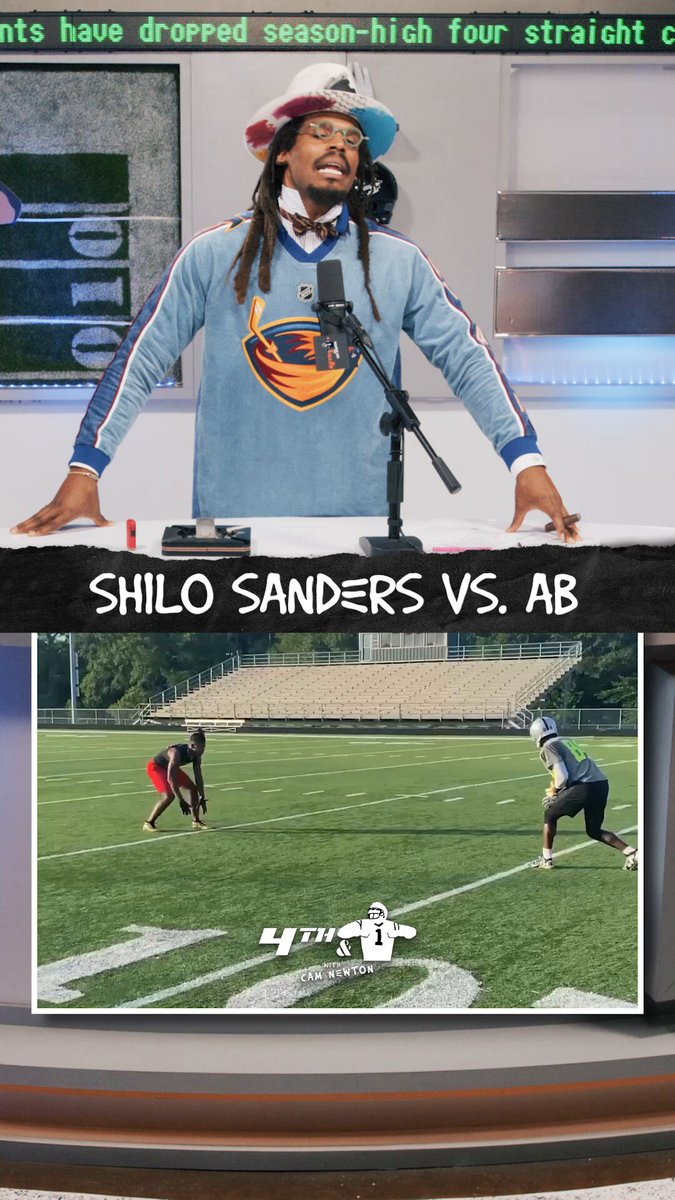
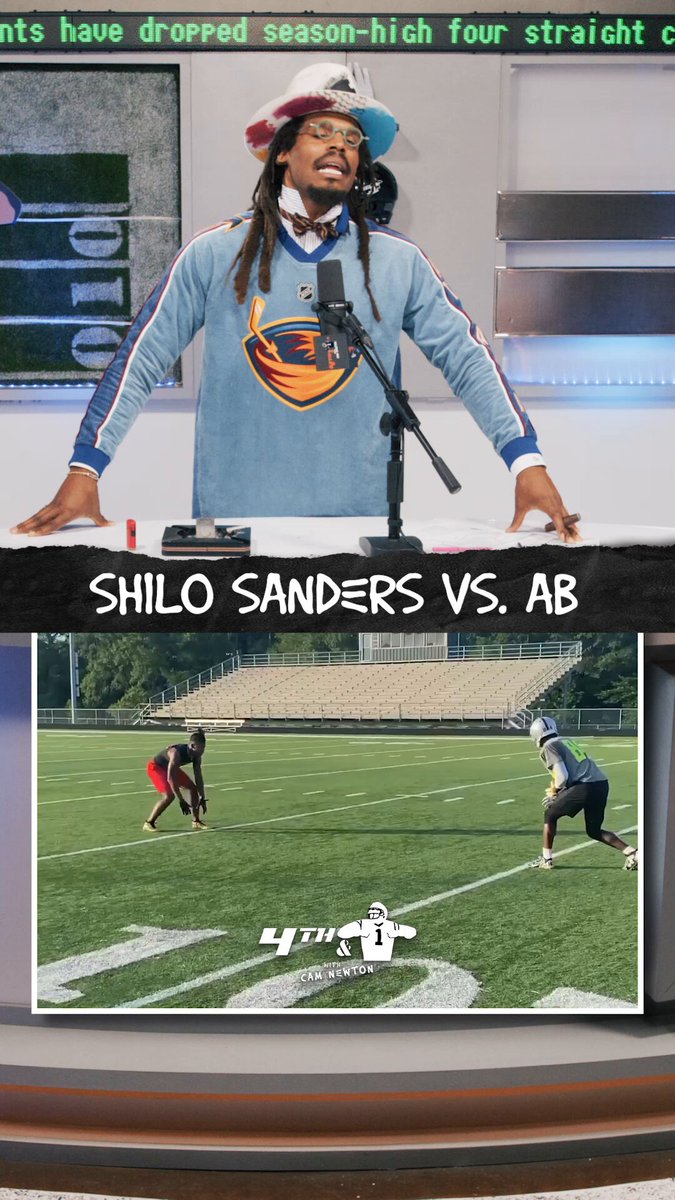
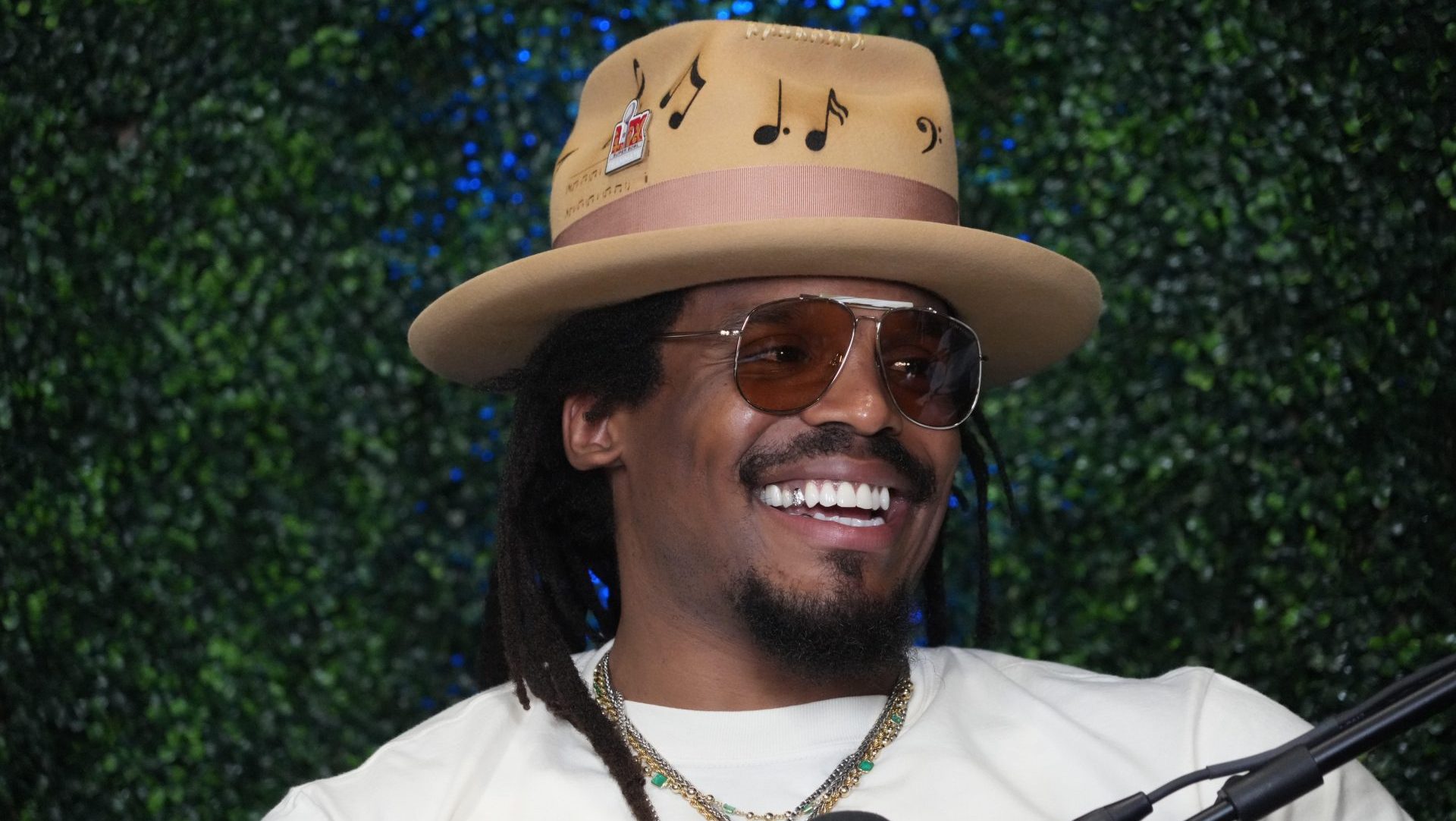
- Loading stock data…
-

 Motorsports3 weeks ago
Motorsports3 weeks agoSoundGear Named Entitlement Sponsor of Spears CARS Tour Southwest Opener
-

 NIL3 weeks ago
NIL3 weeks agoDeSantis Talks College Football, Calls for Reforms to NIL and Transfer Portal · The Floridian
-

 Sports2 weeks ago
Sports2 weeks ago#11 Volleyball Practices, Then Meets Media Prior to #2 Kentucky Match
-

 Motorsports2 weeks ago
Motorsports2 weeks agoSunoco to sponsor No. 8 Ganassi Honda IndyCar in multi-year deal
-
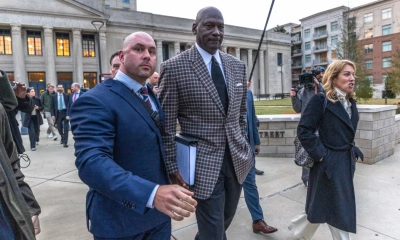
 Motorsports2 weeks ago
Motorsports2 weeks agoNascar legal saga ends as 23XI, Front Row secure settlement
-

 Motorsports3 weeks ago
Motorsports3 weeks agoAccelerating Inclusion: Breaking Barriers in Motorsport
-
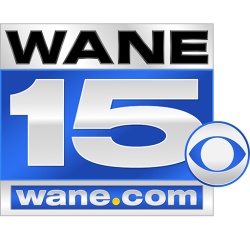
 Motorsports3 weeks ago
Motorsports3 weeks agoNorth Florida Motorsports Park led by Indy 500 Champion and motorsports legend Bobby Rahal Nassau County, FL
-
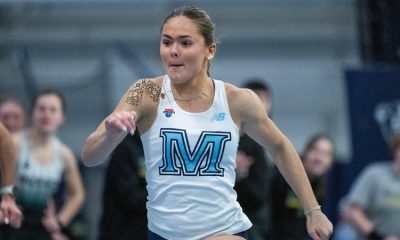
 Sports2 weeks ago
Sports2 weeks agoMaine wraps up Fall Semester with a win in Black Bear Invitational
-
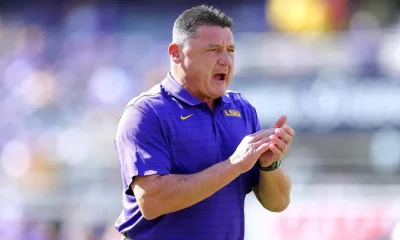
 NIL3 weeks ago
NIL3 weeks agoEd Orgeron: Paying players via NIL would only require a ‘minor adjustment’
-
Motorsports3 weeks ago
NASCAR, 23XI Racing, Front Row Motorsports announce settlement of US monopoly suit | MLex
































